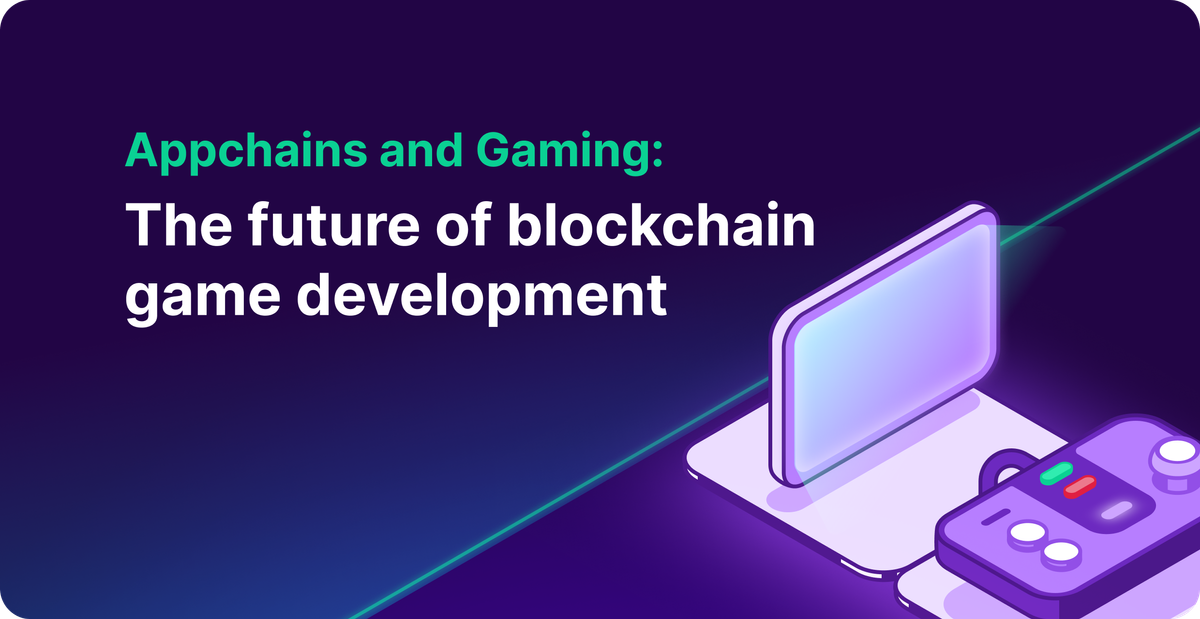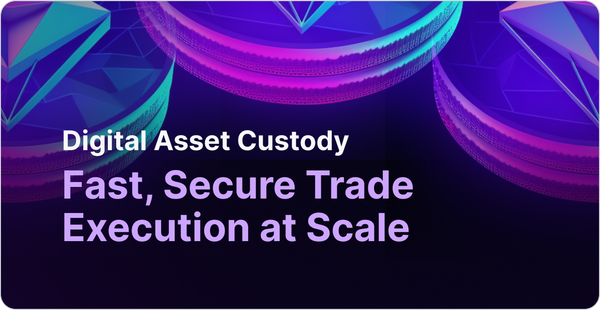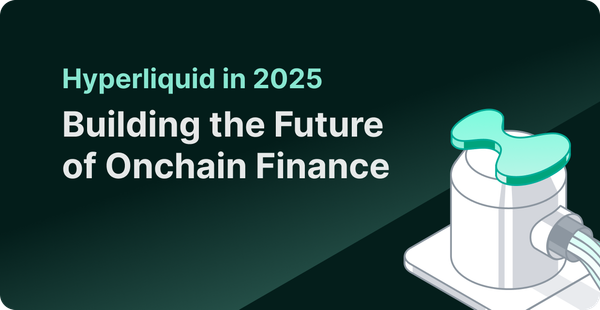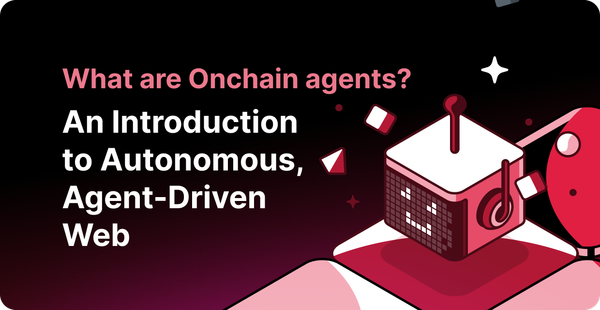Appchains and Gaming: The Future of Blockchain Game Development
Discover how appchains—application-specific blockchains—are solving technical challenges in blockchain gaming.

Blockchain games have not been welcomed by gamers at large. Latency and technical issues, poor gameplay, and hyper-financialization have impeded the adoption of web3 games.
While the dissatisfaction still looms, web3 games remain alluring as they promise players more ownership and the opportunity to create expansive in-game economies.
Poor gameplay and hyper-financialization can be solved at a creative and strategy level but technical issues need a broader fix. Till now, web3 games were built on general-purpose blockchains which are not specifically designed for gaming. The one-size-fits-all nature of general blockchains is the limiting factor here.
Enter appchains or application-specific chains, they are independent blockchains that can be further designed with a laser focus on specific applications like gaming in this case. Until now, web3 games have been constructed on general-purpose blockchains unsuited for gaming, limiting their potential.
However, appchains, or application-specific chains, offer a solution. These independent blockchains can be tailored precisely for specific purposes, such as gaming.
But, what are appchains and how can they revive web3 gaming?
In this article, we’ll explain what appchains are, how they help in building blockchain games, and how developers can use them to build web3 games.
What are Appchains?
Appchains are blockchains tailored specifically for applications like gaming, healthcare, or trading. They provide a more controlled environment for developers to build and deploy applications and allow them to fine-tune blockchain parameters, like consensus mechanisms and governance models, to best suit the application's needs.
This way, appchains are never bogged down by unrelated transactions and processes like traditional blockchains.
Role of appchains in blockchain gaming development
Gaming appchains are independent blockchains, designed specifically for web3 games and gaming protocols. The architecture of gaming appchains is a departure from the general-purpose design of platforms like Ethereum to a more tailored infra.
This means improved performance – faster transaction speeds and higher throughput — essential for real-time quality gameplay. Also, gaming appchains can be configured to consume a consistent amount of gas, making them predictable for gamers and developers alike. As a result, developers can build richer, more immersive gaming experiences.
Benefits of appchains for web3 game developers
Improves gameplay
Gaming appchains can improve gameplay by minimizing traditional blockchain latency, ensuring that actions like trading items, and updating scores are done in real time. The elimination of delays and complexities helps developers create smoother and more engaging gaming experiences.
In turn, this attracts more players and allows them to focus on gameplay rather than various technical complexities.
Gaming standardization
Appchains allow developers to redefine blockchain infrastructure, specifically for games and gaming protocols. This makes it easier to standardize in-game assets like skins, weapons, or currencies, enhancing the value and broadening the utility of the asset.
Cross-game compatibility can also break down barriers between games, allowing players to leverage their resources more broadly. This uniformity across different games on the same appchain reduces the learning curve and enhances user engagement.
For developers, gaming standards help in building custom APIs — application programming interfaces and plug-and-play components to make game development easier.
Gaming assets liquidity
A major possibility of gaming appchains is the potential for cross-game asset interoperability. Players could use certain assets across different games within the same appchain. This also opens the door for collaborations between different games and brands, leading to the creation of unique, co-branded avatars.
All in all, appchains can redefine in-game marketplaces, and their dynamics while also consolidating the cross-game liquidity of these assets.
Security
Appchains bolster security and ensure fair gameplay by providing built-in anti-cheat measures and defending against DDoS attacks. They also provide data encryption and anonymous or pseudonymous gaming options to protect player identities.
These features allow developers to provide a more secure and equitable gaming experience for players.
Developer-friendly environment
Appchains streamline the game development process in multiple ways. While the inherent gaming standards and execution environment are a huge boost for game development, gaming-specific tools, and pre-built smart contract libraries simplify how developers build games.
Developers can also prototype, test, and reiterate their games quickly while also reducing deployment and testing costs. Overall, gaming appchains allow developers to focus more on creative aspects of game design rather than building games from scratch.
How to build gaming appchains?
Here is a five-step overview of how developers can build gaming appchains:
Choose a blockchain framework
Start by choosing a blockchain framework that aligns with gaming requirements. While Ethereum's robustness is unparalleled, keep an eye out for gaming-specific blockchains such as Ronin that are engineered to provide high transaction throughput and minimal latency.
Design the appchain structure
Design your appchain to cater specifically to gaming needs. This involves configuring nodes to optimize for data storage, processing power, and network bandwidth. Sharding or similar technologies can also be implemented to distribute the load and ensure that the network can handle massive multiplayer environments without lag or downtime.
Write smart contracts
Smart contracts are the basis for most functionalities of blockchain games. Developers need to consider practices that ensure smart contracts can efficiently accommodate complex game logic, rapid state changes, and interactions between multiple smart contracts.
They also need to optimize smart contracts for high performance, ensuring they can handle a large number of transactions quickly and efficiently. Developers should minimize the computational resources required, thereby reducing transaction costs (gas fees).
Game economics
Tokenomics determines the role of the native token within the gaming ecosystem. This could range from being a medium of exchange for in-game purchases to acting as a reward mechanism for player achievements or participation.
It’s also imperative to finalize the supply of tokens, schedule, and distribution, and ensure that the token seamlessly integrates with the game interface and traditional economies to see mass adoption.
Security practices
Security in gaming appchains is multifaceted, ranging from the protection of fairness of gameplay to the protection of user data and assets.
Developers need to protect the gaming appchain against Sybil attacks and similar spam attacks where bad actors clog the network. To combat this, gaming appchains can employ anti-spam measures such as rate limiting, transaction fees, or prioritizing transactions based on certain criteria (like token holdings or account age).
Rather than building from scratch, developers can use QuickNode’s custom chain toolkit to launch their gaming appchain. The toolkit provides developers with the flexibility to tailor the appchain with high performance via scalable remote procedure calls (RPC) nodes and custom indexing APIs.
Future of blockchain gaming: Are appchains the solution?
Appchains can be touted as the solution for blockchain games to live up to their potential. They give developers the infrastructural playground to worry less about the technicalities, and more about the creativity, gameplay, and business logic. Gaming appchains can also reduce the fragmented nature of games, and help them co-exist, courtesy of the standardization it brings.
Mainstream gaming is likely to embrace the appchains philosophy, integrating blockchain elements into popular titles. More diverse and flexible gaming economies can be expected as in-game assets gain real-world value via true ownership.
Further, there is a possibility that the integration of innovative tech like artificial intelligence, augmented reality, and virtual reality will open up more possibilities for blockchain games. To sum it all up, blockchain games built on appchains have the potential to redefine gaming.

About QuickNode
QuickNode is building infrastructure to support the future of Web3. Since 2017, we've worked with hundreds of developers and companies, helping scale dApps and providing high-performance access to 50+ blockchains. Subscribe to our newsletter for more content like this, and stay in the loop with what's happening in Web3!





